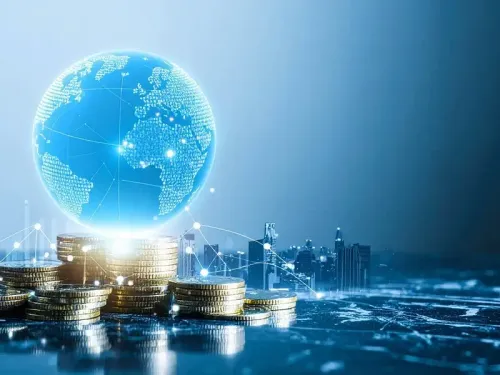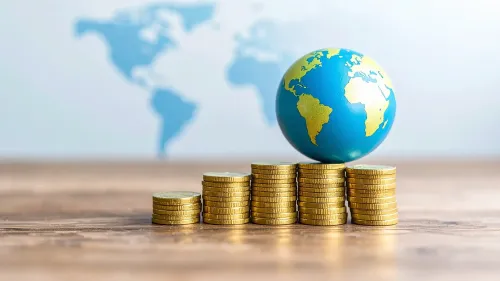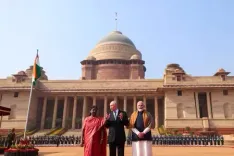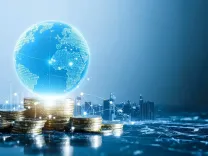Could the India-UK Free Trade Agreement Transform Global Trade?
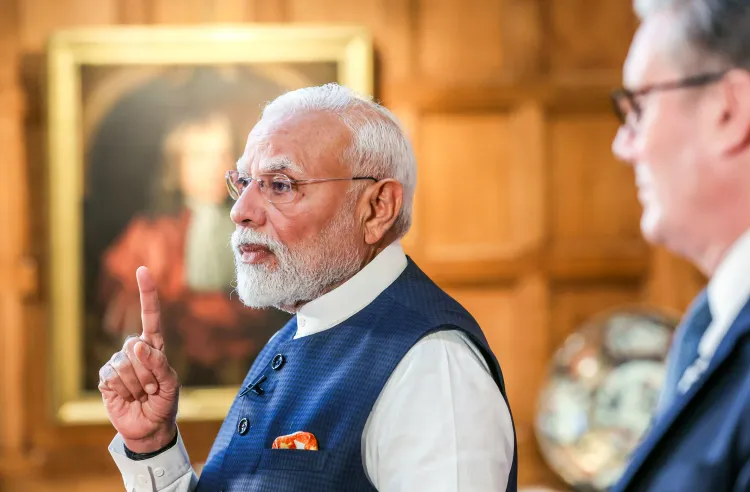
Synopsis
Key Takeaways
- The India-UK FTA will reduce tariffs on 99% of Indian exports and 90% of UK goods.
- Lower prices on luxury cars, cosmetics, and medical devices for Indian consumers.
- India's leather sector is projected to gain a 5% market share in the UK.
- The agreement fosters innovation and investment between the two nations.
- Exports to the UK in the gem and jewellery sector could reach $2.5 billion within three years.
New Delhi, July 24 (NationPress) Prime Minister Narendra Modi and UK Prime Minister Keir Starmer have officially signed the much-anticipated Free Trade Agreement (FTA) on Thursday, marking a pivotal moment in the trade and economic relations between India and the UK.
This historic agreement will see the UK significantly reduce duties on 99% of Indian exports, while India will cut tariffs on 90% of UK goods, leading to a remarkable reduction in tariff lines and specific regulatory processes.
Consumers in India can expect to see lower prices on imported goods, which include luxury cars, cosmetics, medical devices, gin, and Scotch whisky. Over the next two years, it is projected that India's leather sector will boost its market share in the UK by 5%.
During this momentous event organized by the Confederation of Indian Industry (CII), a delegation of 16 prominent Indian business leaders, headed by Sunil Bharti Mittal, Founder and Chairman of Bharti Enterprises and Co-Chair of the India-UK CEO Forum, joined PM Modi.
The industry leaders have expressed their enthusiasm for the trade agreement, labeling it as historic and a true game-changer for both nations.
“The Indian industry welcomes the India-UK FTA with optimism. This agreement establishes a modern, forward-looking partnership that will stimulate innovation, ease market access, and foster investment,” stated Mittal.
Businesses in both India and the UK stand to benefit significantly, as this agreement lays the foundation for enhanced bilateral cooperation across key growth sectors, he added.
Dr. Anish Shah, Group CEO and MD of Mahindra Group, remarked that this landmark trade agreement signifies a transformative moment in the global economic landscape and underscores India’s rising stature as a trusted partner and innovation powerhouse.
“This pact not only benefits trade but serves as a blueprint for a modern partnership that emphasizes innovation, sustainability, and inclusive growth,” remarked Shah.
Kirit Bhansali, Chairman of the Gem and Jewellery Export Promotion Council, stated that this groundbreaking agreement opens up exciting new avenues for the gem and jewellery sector.
“Currently, our exports to the UK are valued at $941 million; with the new duty concessions, this is expected to soar to $2.5 billion within the next three years, raising the total bilateral trade in our sector to an estimated $7 billion,” Bhansali added.


